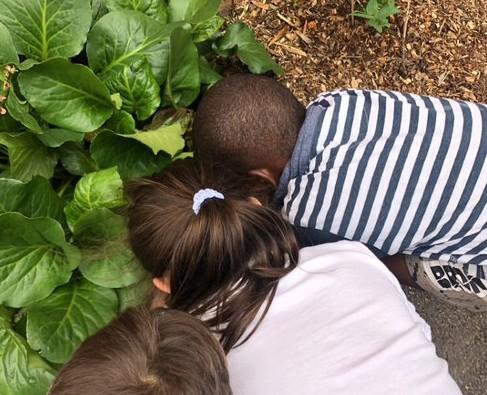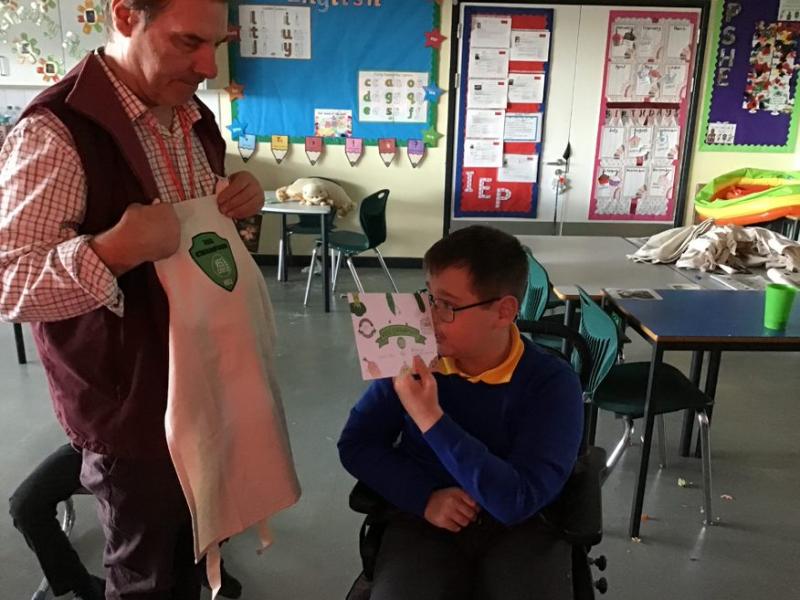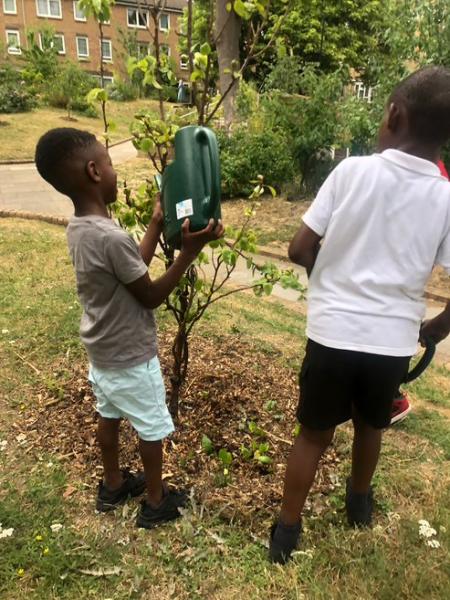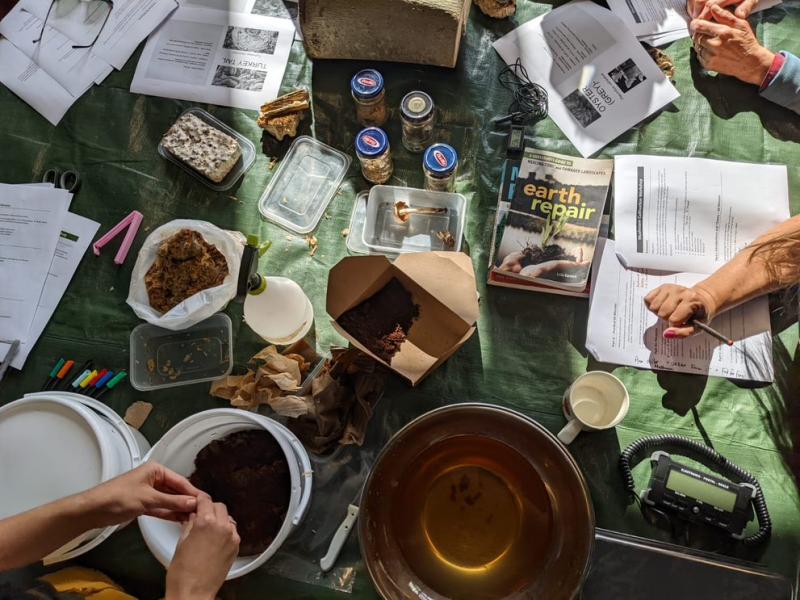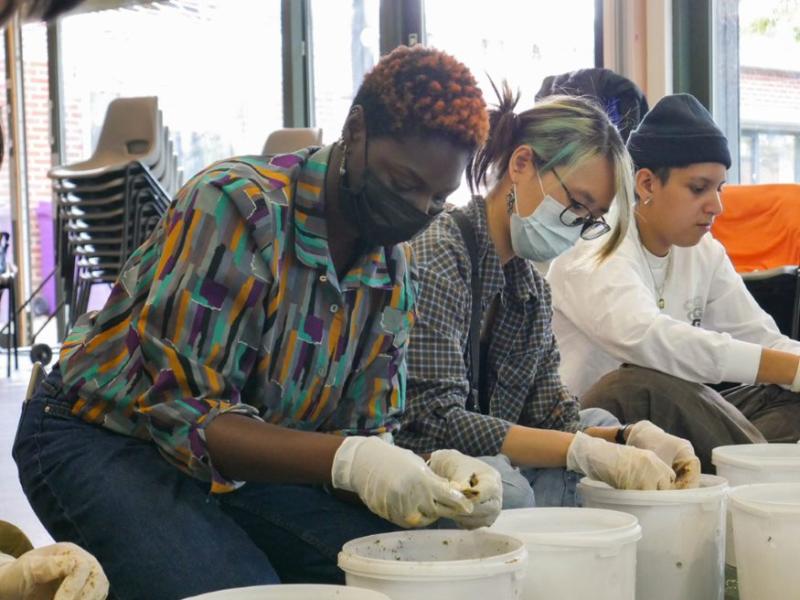Joanna Watson04 Dec 2022
Many folk feel isolated and unsupported especially people in immigrant communities and people of colour in rural areas. What we found through conversations with local projects that our Local Nature Innovation fund (LNIF) had supported was inspiring and humbling. Dedicated people working to break down barriers and help shift that feeling of isolation to a sense of belonging - using nature to support people and help heal. Building emotional and physical wellbeing and helping support intergenerational sharing and learning.
There is no substitute for hands-on experience and the organisers had some telling reflections on what to consider when connecting people and nature.
Go with the energy and don’t over-structure your events
When engaging people in nature-based activities, Dot from Oxford City Farm suggests having some structured, pre-planned touch points but as far as possible, creating the space to follow the energy of the event. Foster the joy of being in nature because it’s liberating and given the opportunity, people will find their own way to be in it. At open air events, build in some agenda space for indoor activity (art, crafts, poetry) in case of bad weather, but allow lots of free space and socialising and encourage kids to see the outdoors as an adventure. Where possible give people agency - preparing and cooking what you’ve foraged and/or grown is a powerful bonding experience and enables women to share untapped knowledge of nature and learn new things from each other.
Mariam from Totnes Community Herbal adds that it is important for facilitators to have the confidence to throw their session notes out the window, if it feels right for the group to go in a different direction. A story shared by one of the participants during her session led Mariam to trust her instincts and spend the day holding space for the group’s grief.
Organisers and facilitators with lived experience of the challenges help build trust
Sabrina explains that all the organising for the Black Trail Runners comes from that community - designing inclusive spaces in the outdoors through the lens of lived experience is fundamental to their vision. The 300 tickets for their Black to the Trails event were a sell-out. 70% of tickets were purchased by people of colour and a higher proportion of entrants were women, instantly dispelling the myth that people of colour aren’t well represented in trail running because they aren’t interested in the sport or being out in nature.
Mariam for Totnes Community Herbal added that she designed her hugely successful series of sharing circles around the nature-based activities that had helped her personally heal from her experience of rural racism.
Dot from Oxford City Farm stressed the importance of commissioning paid facilitators of colour with language skills to host her event for a women’s refugee group. Multi-lingual facilitators helped to make the event feel safe and comfortable.
For Rose at Mountford Growing Community local lived experience has been key to the success of her summer school sessions. One of the facilitators of the group used to work as a local childminder, so a lot of the kids already knew her as a trusted community figure in the neighbourhood. The Mountford Growing Community grows mainly by word of mouth via people who are embedded in the community at a hyper-local level.
Knowhow isn’t the problem. Resources are.
Involving kids in the annual growing cycle of veg can encourage them to eat it and working with kids in schools is a great way to reach parents says Darren from Hull Food Partnership. Providing lesson plans also engages teachers and can help mitigate the pressures placed on them of simply meeting the demands of the curriculum.
Rose from Mountford stresses that know-how isn’t the problem, resources are. She points out that cooking and gardening are a way of enabling residents to demonstrate their own cultural skills and abilities and one reason people get involved in the project is to share their knowledge of growing things with their children. This doesn’t otherwise feel possible when living in a flat without a garden. There is huge demand within the community to keep the project going, but long-term funding streams are a challenge.
Alani from The Village describes how QTPOC are a self-sustaining community in terms of skills, be they facilitation, design or storytelling, but often lack the secure access space and jobs with reasonable pay to make the most of these skills. They also acknowledge that cultures of volunteerism don’t work well for people without secure employment. Hence the importance of micro-grants that can support facilitators and organisers to be paid for their work.
Nature connection doesn’t need to be verbal
Nature and food skills have a universality beyond language. Multi-lingual facilitators make it easier for organisers and for participants who may not have much English or a common language but organisers should also design visual non-verbal content to support activities.
Darren from the Hull Food Partnership observed that veg and cooking seem to tap into the same parts of the brain as music, art, drama and are unifying across many and varied people. Food - foraging, cooking, eating - has a high band width and you can work together as a group to create a range of activities that work for different people and can be self-defined for individuals.
Think about accessibility. Time of day, seasonality and location are all important factors for people with neurodivergence or living with mental health conditions. People learn in different ways too, so it’s important to provide non-verbal learning tools, audio, graphics, practical hands-on activities.
Access to space is challenging, but there are work arounds
The challenge faced by many small projects is access to space and resources. Having struggled to keep mushroom growing equipment under their bed, Alani from The Village notes that finding space for growing plants or storage of equipment or holding workshops can be a blocker. One hack is to do as much as possible out of doors, where participants can also engage in nature, but this doesn’t solve lack of access to affordable, secure space to embed these projects in the long term and reflects the basic inequalities that small community projects are up against.
Create a sense of safety
There are the practical aspects of helping people of colour to feel safe out of doors in nature or in the country and it’s an important element of any event organising. And the cost and logistics of access to nature should not be underestimated. Transport has been raised as a major issue repeatedly by Black Trail Runners, Oxford City Farm and Black & Green Ambassadors and the projects have prioritised allocating budget to cover travel costs.
But there is also psychological safety. You need to create a safe space, build trust and create the kind of spaces where people naturally gather. Walking, talking (and singing) as a group in the countryside or sitting round a fire out of doors are fundamental human experiences that can help people open up, talk and share as Mariam from Totnes Community Herbal and Rosina from Black & Green Ambassadors have described.
Being clear and strong about who’s allowed into the space and not compromising the intention of the event is key. How prepared participants are to open up and be vulnerable is dependent on how safe they feel. Alani from the Village had to gently turn away two straight men from their queer fungi workshop. Mariam for Totnes Community Herbal used her network of friends of friends to bring together a select group for her six-week sharing circle exploring rural racism, carefully curating the safest possible space to sharing painful experiences. Sabrina is organising Black to the Trails to create a joyful and celebratory event for people of colour to be out in natural surroundings and connect with nature.
Thank you
We are grateful for the LNIF-funded organisers for their generosity and candidness in sharing their experiences. If you would like to know more about how we set up the fund and what we learned please get in touch and if you’d like to learn more about the individual project, contact us and we can pass on your details.


